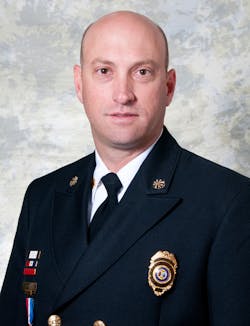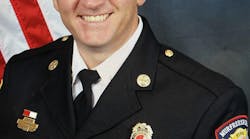Wouldn’t it be great to have a session where the 100 most influential CEOs in America could sit down with the 100 most influential fire chiefs? How about 10? What if we could assemble all levels of the most influential companies and fire departments at the same table? What would we gain? What would they gain? What would we do with the information shared? Could any of it make a difference to our respective industries? Could it make us better personally, professionally and organizationally? Could this be accomplished at the state level? How about the local level?
I hope you don’t think we have stumbled onto something new here. This has happened many times in many industries and still occurs on a regular basis. In fact, there are groups inside (Baggers, Junto, Wingspread) and outside the fire service that meet regularly or hold events intended to improve society, their profession or the individuals themselves. These groups are formal, informal or quasi-organizational, with a focused outcome of improving the individuals and the profession to which they belong.
Teddy Roosevelt said it best when he declared, “Every man owes a part of his time and money to the business or industry in which he is engaged.” He continued that, “No man has a moral right to withhold his support from an organization that is striving to improve conditions within his sphere.”
The ability to influence is directly proportional to the energy created, the event itself and the circumstances that surround the desired outcome. For example, it is easier to influence decision-makers to fund terrorism training after an event, provided there was a catalyst prior to the event, and a known outcome if support is provided. In my previous column titled “The Fire: Let’s Learn From What They Teach Us” (March 2015), I stated that most of the time, our support is reactive. Shouldn’t we be proactive? Why can’t we create the necessary influence to develop strategies that will ensure that we make a difference? Why can’t we create the necessary influence to prevent a foreseeable tragedy? How do we channel our influence in ways that allow us to do this regularly?
Get connected
I recently attended a forum for CEOs that focused on emerging risks. This was for nonprofits as well as foundations. I left thinking that we, as nonprofits and even fire departments, are very vulnerable to the issues they focused on at this forum—issues like the economy, cyber-terrorism, fraud, relevance, etc. As I listened and learned how to navigate the risks we are faced with, I realized that this too is all reactive. We are learning from others’ events—both the tragic ones and the successful ones—so how can we be more proactive with our influence?
First, we need to reach outside our normal circle of influence. We need to get a diverse opinion on the issues at hand. Seekout individauls who can help us identify our emerging risks. Make the time to get outside of your comfort zone and outside of your industry to not only receive influence, but to provide it as well.
This month’s Fire-Rescue Wingspread Conference (a meeting of fire professionals conducted once every 12 years) will mark a half-century worth of conversations amongst some of the most notable fire professionals. I am not being critical, because our profession has benefited greatly as a result of the support provided by the Johnson Foundation’s initial contribution to our profession and, certainly, the individuals and organizations involved have benefited, as we have met with an intentional focus on addressing the key issues of the fire service.
Imagine if the U.S. Fire Administration (USFA) was under as much attack as the EPA or IRS in this upcoming election. Why would I suggest you consider such a radical scenario? Because of its influence and impact. The EPA and IRS have increased their influence since their creation. I am not sure the USFA has. We are as important as those agencies, and deserve to influence public policy. Our engagement would net positive outcomes for our country.
Seek to influence
I hope you will join me to seek to create the necessary influence at a local, state and national level. I also hope that we can find the way to unite our fire service voices and share it with our communities and the nation.
To think of the possibilities and opportunities that exist to improve fire protection is exciting—and it is our calling. How can we be so confident of those improvements that impact quality of life for citizens? That confidence comes from the years of service and influence that we have had to this point. We have progressed because of the leadership and the gatherings of such leaders. We have progressed because of the organizations that represent our industry. I encourage you to be a part of the organizations that represent our industry and give back to a great profession that gives so much to all.
Let’s seek to influence a following that brings change and opportunity for the betterment of our profession. Let’s answer the beginning question with a resounding, “Yes, We got this!”






